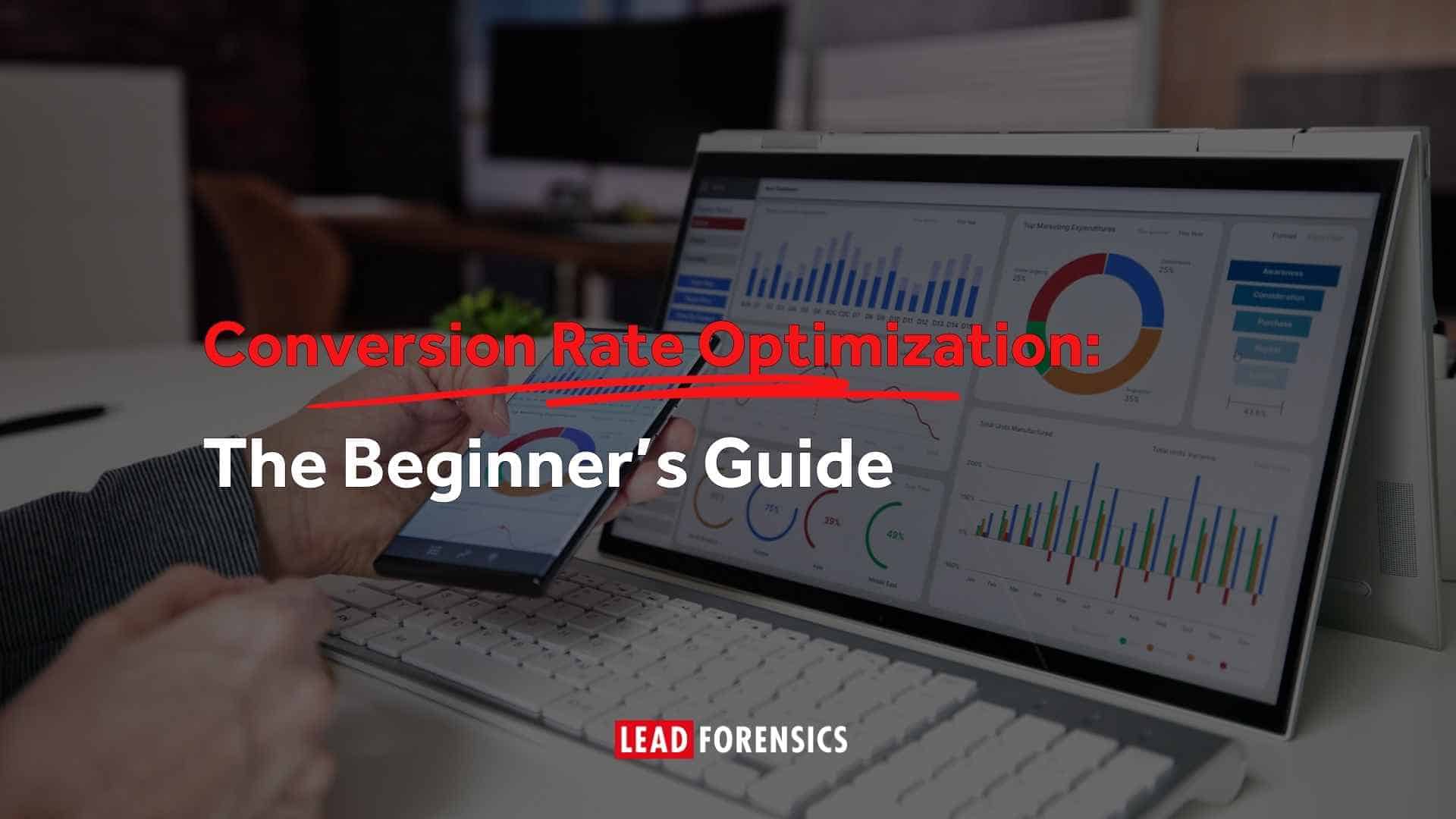Enter social selling: the art of using social media to build long-term relationships with your prospects and customers. Social selling requires a patient and authentic approach, with a focus on providing value to your audience.
So, put down the bullhorn and pick up your smartphone, because we’re about to reveal the seven secrets of social selling that will help you connect with your prospects and grow your business.

Want to learn more about social selling? Watch our webinar, “7 Secrets of Social Selling” with Morgan Smith, Managing Director of Alignd and Co-host of the B2B Power Hour
But first – what is social selling?
Social selling is a modern sales technique that leverages social media to connect with potential customers, build relationships, and ultimately drive sales. Unlike traditional sales methods, social selling is less about the hard sell and more about building trust and credibility by engaging with prospects in a genuine and helpful way.
By sharing valuable content, providing personalized solutions, and demonstrating industry expertise, social sellers can establish themselves as thought leaders in their field, creating a foundation of trust and rapport with potential clients. Social selling takes a more proactive and customer-centric approach to sales, as opposed to simply waiting for leads to come to you.

I think it all comes back to credibility. And I think we spend a lot of time confusing attention for credibility. So there’s, there’s this idea that if you have 10,000 followers or 15,000 followers or whatever, you’re a really credible person and that’s the goal. And that may be well true, right? There’s probably a, an overlap between having a lot of attention on the platform and having a lot of credibility.
But credibility really is, can I trust you? Are you showing up with good intentions? Can you solve my problems? And the truth is nobody really logs into LinkedIn, for example, to be pitched to or sold to. I think the goal for any seller who wants to use social effectively is to build credibility, build that trust, show up with good intentions, and have good conversations before you ask for the meeting or before you get them into your pipeline or into a sequence of some kind.
– Morgan Smith, Managing Director of Alignd and Co-host of the B2B Power Hour, in our webinar “7 Secrets of Social Selling“
Now let’s get into it – if you’re looking to improve your social selling game, here are some tips to keep in mind:
Build a strong personal brand
Building a strong personal brand is essential for successful social selling. Your personal brand is the image and reputation that you project to your target audience, and it’s what sets you apart from your competitors.

Here are some tips for building a strong personal brand:
- Identify your niche: Start by identifying your area of expertise and the niche that you want to focus on. This will help you position yourself as an authority in your industry and build credibility with your audience.
- Create a complete profile: Make sure that your social media profiles are complete and up-to-date. This includes using a professional profile picture, writing a compelling bio that highlights your skills and expertise, and including links to your website or other relevant resources.
- Share valuable content: Sharing valuable content is a key part of building your personal brand. This could include blog posts, articles, infographics, videos, or any other type of content that showcases your knowledge and expertise. Make sure that the content you share is relevant to your niche and provides value to your audience.
- Engage with your audience: Engaging with your audience is essential for building relationships and establishing trust. This could involve responding to comments on your posts, reaching out to prospects with personalized messages, or participating in relevant group discussions.
- Be consistent: Consistency is key when it comes to building your personal brand. Make sure that you are posting regularly and that your messaging is consistent across all of your social media platforms.
- Leverage your network: Your network can be a valuable asset when it comes to building your personal brand. Make sure that you are connecting with other influencers in your industry, participating in relevant online communities, and collaborating with other professionals to expand your reach and build your credibility.
By following these tips, you can establish a strong personal brand that positions you as an authority in your industry and sets you apart from your competitors. This will help you build relationships with your target audience, establish trust, and ultimately drive more sales through social selling.
Listen to your prospects
One of the key benefits of social selling is that it allows you to listen to your prospects and understand their needs and pain points.

By monitoring their activity on social media, you can identify opportunities to offer solutions and build a relationship based on trust and empathy.
The strategic question is, are they active on the platform? Because if they are active on the platform, you shouldn’t be sending InMails or. or, uh, personalized connection requests. If they’re posting content, respond to the content. If they’re liking stuff and they’re commenting on things, then you should be responding to those comments and showing up in the same places that they’re engaging.
– Morgan Smith, Managing Director of Alignd and Co-host of the B2B Power Hour, in our webinar “7 Secrets of Social Selling“
Here are some ways that you can use social media to listen to your prospects:
- Monitor social media activity: Social media platforms are a goldmine of information about your prospects. By monitoring their activity on social media, you can gain insights into their interests, needs, pain points, and buying behavior. This information can help you tailor your messaging and approach to better resonate with your prospects.
- Engage in social listening: Social listening involves monitoring social media channels for mentions of your brand, products, or industry. This can help you identify trends and opportunities to engage with prospects and address their concerns or questions.
- Participate in relevant groups: Joining and participating in relevant social media groups can help you listen to the conversations that are happening in your industry. This can help you identify common challenges and pain points that your prospects are facing, as well as opportunities to offer solutions and build relationships.
- Respond to comments and messages: When prospects reach out to you on social media, it’s important to respond in a timely and helpful manner. This can help build trust and establish a relationship based on empathy and understanding.
By listening to your prospects on social media, you can gain valuable insights into their needs and pain points, and tailor your approach to better address their specific challenges. This can help you build stronger relationships with your prospects and ultimately drive more sales through social selling.
Provide value through content
Social selling is not about hard-selling your products or services. Instead, it’s about providing value to your audience by sharing relevant and helpful content that addresses their challenges and interests.

This could be in the form of blog posts, videos, infographics, or any other type of content that resonates with your target audience.
“At the B2B Power Hour, we have this rule that we like to call vampire sales – so in folklore, vampires weren’t allowed into your home unless they were invited in, and so vampire sales is: you’re not allowed to pitch unless you’re invited. So if you think about that as an engagement strategy, you are looking for them to ask you, so what do you do?
If you can’t say anything about that until they ask you for it, it means you’re there showing up, asking good questions, having a good time, dropping valuable resources and really ramping up that engagement.”
– Morgan Smith, Managing Director of Alignd and Co-host of the B2B Power Hour, in our webinar “7 Secrets of Social Selling“
Providing value through content is a key component of social selling. Here’s why:
- Builds trust and credibility: When you provide valuable content to your audience, you demonstrate your expertise and willingness to help them solve their problems. This builds trust and credibility with your audience, which is essential for successful social selling.
- Generates interest and engagement: Sharing interesting and helpful content can help you capture the attention of your target audience and generate interest in your brand. This can lead to increased engagement, such as likes, comments, and shares, which can help expand your reach and build your online presence.
- Positions you as a thought leader: By consistently sharing valuable content, you can establish yourself as a thought leader in your industry. This can help you stand out from your competitors and position yourself as an authority in your field.
- Educates your audience: Providing educational content can help your audience better understand their challenges and how to solve them. This can help them make informed decisions and ultimately lead to more sales and revenue for your business.
When creating content for social selling, it’s important to focus on your audience’s needs and interests. This means doing your research to understand their pain points and challenges and creating content that provides solutions and adds value to their lives. By providing value through content, you can build trust, generate interest, and position yourself as a thought leader in your industry, ultimately leading to more sales and revenue for your business.
Engage in meaningful conversations
Social selling is all about building relationships, and that means engaging in meaningful conversations with your prospects. This could involve responding to comments on your posts, reaching out to prospects with personalized messages, or participating in relevant group discussions.

Engaging in meaningful conversations is a critical aspect of social selling. Here’s why:
- Builds relationships: Social selling is all about building relationships with your prospects. Engaging in meaningful conversations is a great way to start building those relationships. By taking the time to respond to comments and messages, and participating in group discussions, you can show your prospects that you’re interested in what they have to say and that you value their opinions.
- Helps you understand your prospects’ needs: Engaging in conversations with your prospects can help you gain a better understanding of their needs and pain points. This information can help you tailor your messaging and approach to better resonate with your prospects.
- Provides an opportunity to offer solutions: When you engage in meaningful conversations with your prospects, you have the opportunity to offer solutions to their problems. By demonstrating your expertise and willingness to help, you can build trust and establish yourself as a valuable resource for your prospects.
- Improves your online presence: Engaging in conversations on social media can help improve your online presence and expand your reach. When you respond to comments and messages, and participate in group discussions, you increase your visibility and demonstrate your knowledge and expertise to a wider audience.
Tactically speaking, I think about content, comments and conversations – Three Cs.
Content is a great way to educate and nurture an audience. It’s a long-term play, but you’re educating those prospects on a particular piece of what you sell or the problem that you solve.
Comments are great because there’s no cap on them, and they’re a great place to engage directly with your prospects. If somebody’s commenting, you respond to their comment, or if they’re posting their own content, you respond with a comment, or you even appear in the comment section of the influencers that they follow.
And then last is conversations. So send a DM, send a connection request, send in InMail, those are always options to strike up a conversation. But the way you’re gonna start that conversation is not, with a pitch. There’s gonna be a whole other utility tool belt of conversation starters you need to use.
– Morgan Smith, Managing Director of Alignd and Co-host of the B2B Power Hour, in our webinar “7 Secrets of Social Selling“
When engaging in conversations on social media, it’s important to be authentic and personalized. This means taking the time to understand your prospects’ needs and interests, and tailoring your responses accordingly. By engaging in meaningful conversations, you can build relationships, understand your prospects’ needs, offer solutions, and improve your online presence, ultimately leading to more sales and revenue for your business.
Use social media listening tools
To stay on top of your prospects’ needs and interests, you need to leverage social media listening tools that allow you to monitor conversations and activity across multiple social media platforms. This will help you identify new opportunities to engage with your prospects and provide value.

Social media listening tools are essential for successful social selling. Here’s why:
- Allows you to monitor conversations and activity: Social media listening tools enable you to monitor conversations and activity related to your brand and industry across multiple social media platforms. This can help you stay on top of your prospects’ needs and interests, identify new opportunities to engage with them, and keep an eye on what your competitors are doing.
- Provides insights into your audience: By using social media listening tools, you can gain valuable insights into your audience’s needs, interests, and pain points. This information can help you tailor your messaging and content to better resonate with your prospects and provide value to them.
- Helps you identify new opportunities: Social media listening tools can help you identify new opportunities to engage with your prospects and provide value. For example, if you notice a trend or a specific challenge that your audience is facing, you can create content or messaging that addresses that challenge and offer solutions to your prospects.
- Saves time and resources: Social media listening tools can help you save time and resources by automating the process of monitoring social media activity. This means that you can focus on engaging with your prospects and providing value, rather than spending hours manually tracking conversations and activity on social media.
When choosing a social media listening tool, it’s important to consider your specific needs and goals. Look for tools that offer robust monitoring capabilities across multiple social media platforms, as well as analytics and reporting features that can help you measure the effectiveness of your social selling efforts. By leveraging social media listening tools, you can stay on top of your prospects’ needs and interests, identify new opportunities, and provide value to your audience, ultimately leading to more sales and revenue for your business.
Leverage social proof
Social proof is a powerful tool for building credibility and trust with your prospects. By showcasing testimonials, case studies, and other social proof on your social media profiles and website, you can demonstrate your value and help prospects feel more confident in working with you.

Social proof is a powerful psychological concept that can be leveraged to build credibility and trust with your prospects. Here’s why social proof is important in social selling:
- Demonstrates value: Social proof can help demonstrate your value to prospects by showcasing the success and satisfaction of your current customers. By sharing testimonials, case studies, and other forms of social proof, you can provide evidence that your products or services are effective and can deliver results.
- Builds credibility: Social proof can also help build your credibility with prospects by demonstrating that other people trust and recommend your business. This can be especially important in B2B sales, where trust and credibility are critical factors in the decision-making process.
- Reduces risk: Social proof can help reduce the perceived risk of working with your business by demonstrating that other people have had positive experiences. This can be especially important for prospects who may be hesitant to take a chance on a new vendor or supplier.
- Boosts engagement: Social proof can also help boost engagement with your content by making it more interesting and compelling. When prospects see that other people are engaging with your content and recommending your business, they are more likely to take notice and take action.
To leverage social proof in social selling, it’s important to showcase testimonials, case studies, and other forms of social proof prominently on your social media profiles and website. You can also incorporate social proof into your messaging and content by referencing satisfied customers or sharing success stories. By leveraging social proof, you can build credibility, reduce risk, and boost engagement with your prospects, ultimately leading to more sales and revenue for your business.
Focus on building long-term relationships
Social selling is not a quick-fix solution for closing deals. Instead, it’s about building long-term relationships with your prospects and nurturing them over time. This requires patience, consistency, and a genuine desire to help your prospects achieve their goals.
“I think if your prospect’s active on the platform, commenting on stuff or posting content, they’re engaging on the platform. Just engage with them, build that rapport digitally first and just get your face and your name in front of them.”
– Morgan Smith, Managing Director of Alignd and Co-host of the B2B Power Hour, in our webinar “7 Secrets of Social Selling“
Social selling is a long-term approach to sales that focuses on building relationships with prospects and customers through social media. Rather than using social media as a tool to close deals quickly, social selling is about developing long-term relationships with your prospects that can lead to mutually beneficial business partnerships.

To successfully implement social selling, you need to focus on building these long-term relationships. This means taking a patient and consistent approach, rather than trying to close deals quickly. Here are some tips for building long-term relationships through social selling:
- Be helpful: Social selling is all about providing value to your prospects and customers. To build long-term relationships, focus on helping them achieve their goals and solve their challenges. Share helpful content, answer their questions, and offer insights that can help them make informed decisions.
- Be authentic: Building long-term relationships requires authenticity and trust. Be genuine in your interactions with prospects and customers, and focus on building a rapport based on mutual interests and shared goals.
- Be consistent: Consistency is key to building long-term relationships through social selling. Stay active on social media, engage with your prospects regularly, and provide value consistently over time.
- Listen to your prospects: To build a relationship, you need to listen to your prospects and understand their needs and challenges. Use social media listening tools to monitor their activity and engage with them in meaningful conversations.
- Follow up: Following up is critical to building long-term relationships through social selling. Keep in touch with your prospects, provide updates on relevant topics, and continue to provide value even after they become customers.
By focusing on building long-term relationships with your prospects, you can establish yourself as a trusted partner and position yourself for success over the long term. With patience, consistency, and a genuine desire to help your prospects achieve their goals, social selling can be a powerful strategy for driving revenue and growth for your business.
Social selling is an essential strategy for B2B marketers and salespeople looking to connect with their target audience and close more deals. By focusing on building a strong personal brand, listening to your prospects, providing value through content, engaging in meaningful conversations, using social media listening tools, leveraging social proof, and building long-term relationships, you can become a social selling superstar in no time.
Don’t forget to check out our full webinar with Morgan for more wisdom on how to nail social selling!
By using Lead Forensics, businesses can identify the companies that visit their website, gather key information about those companies, and use that data to tailor their social selling efforts.
With its advanced website visitor identification capabilities, Lead Forensics is an invaluable tool for any B2B organization looking to optimize their social selling strategy and generate more leads.
By combining social selling with Lead Forensics, businesses can stay ahead of the competition and achieve greater success in the digital age. Book your demo here!








